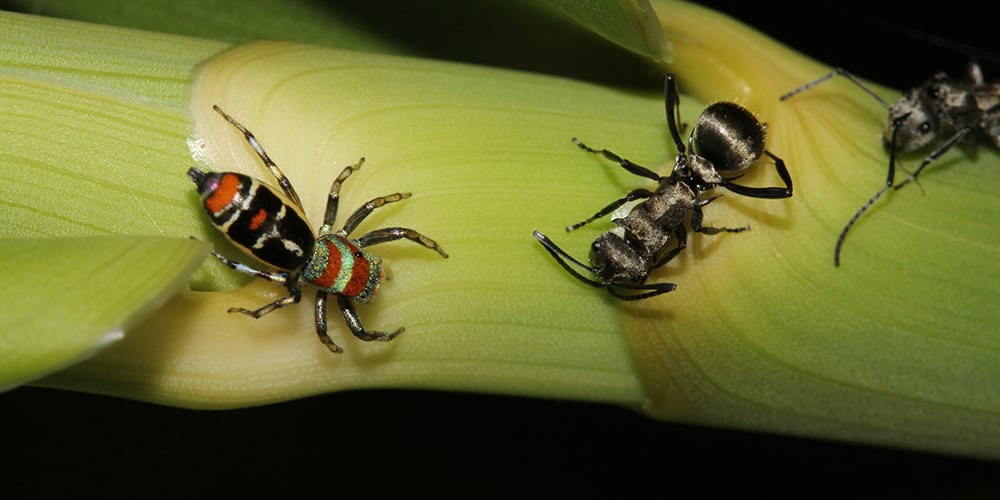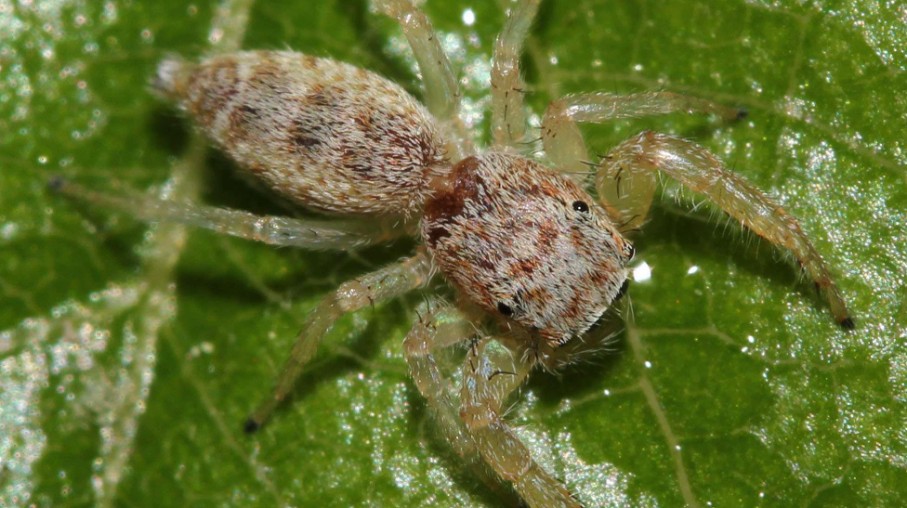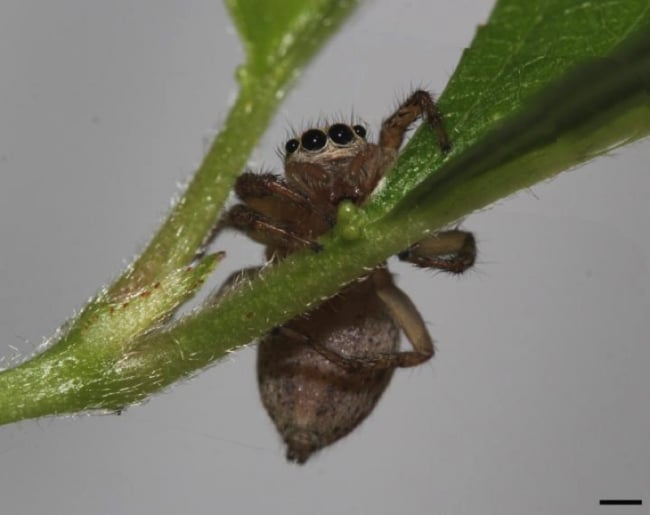
When one thinks of a spider, the image that comes to mind is the crafty arthropod feasting on an innocent insect it has lured into its web. It turns out that the arachnids have a much more sophisticated palate. In addition to relishing the occasional fish and frog, they also have a strong penchant for vegetables. At least, that's the conclusion reached by a team of zoologists from the USA, United Kingdom and Switzerland, after an extensive worldwide study of the eight-legged arthropods.

The researchers who observed spiders from ten different families say that they feed on a broad range of plant types including trees, shrubs, weeds, grasses, ferns and orchids. They also have a diverse taste in the kind of plant food, eating everything from nectar and plant sap to leaf tissue, pollen, and even seeds.
Though all the arachnids were seen eating some greens, it was the largest family of spiders — the Salticidae or jumping spider — that impressed the researchers the most. The plant-dwellers that accounted for 60% of all the vegetable eating incidents recorded by the scientists were experts at seeking out suitable plant food.

According to the study that was published earlier this year in the Journal of Arachnology, plant-eating spiders thrive in every continent except the Antarctica. Conversely, spiders living in warmer climates appeared to have a great liking for plant food. The scientists think it could be because tropical plants secrete more significant amounts of nectar, which not surprisingly, is popular with the spiders.

University of Basel's Martin Nyffeler, who led the study, believes that including vegetables in their diets does not only benefit the spiders nutritionally, but also increases their chances of survival during seasons when insects are scarce. However, much as they may enjoy their vegetables, there is little chance of the arachnids shunning insects altogether. That's because that the arthropods need the protein provided by their prey to fully develop and for activities like silk spinning.
Resources: zmescience.com, unibas.ch.